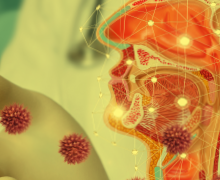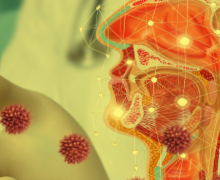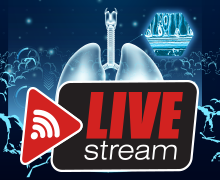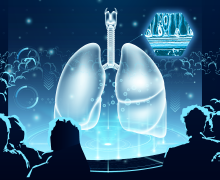Tuesday, September 29, 2015
11:00 AM - 1:00 AM
Michael H. Pillinger, MD - Virtual Professor
Professor
Department of Medicine
Department of Biochemistry and Molecular Pharmacology
New York University School of Medicine
Director of Rheumatology
VA New York Harbor Health Care System
New York, New York
Paul Doghramji, MD, FAAFP
Family Physician
Collegeville Family Practice
Medical Director of Health Services
Ursinus College
Collegeville, Pennsylvania
N. Lawrence Edwards, MD, MACP, FACR
Professor of Medicine
Division of Rheumatology and Clinical Immunology
Program Director, Internal Medicine Residency
Vice Chairman, Department of Medicine
University of Florida
Gainesville, Florida

This activity is jointly provided by Global Education Group and Integritas Communications.
This activity is supported by an educational grant from AstraZeneca.
This event is not a part of the official AAFP Assembly. This activity has been reviewed and is accepted for up to 1.5 Prescribed credits by the American Academy of Family Physicians.
There is no registration fee for attending this program; however, seating is limited. Preregistration does not guarantee seating. We recommend arriving at the program location early.
Target Audience
The educational design of this activity addresses the needs of family physicians and other primary care providers involved in managing patients with hyperuricemia and gout.
Statement of Need/Program Overview
Gout is a chronic arthropathy caused by hyperuricemia, which is abnormally high uric acid levels in the blood that can lead to monosodium urate crystal deposition in tissues and joints.1 The overall prevalence has been estimated at 4%—or approximately 8.3 million Americans—and may reach 12% to 13% in certain subpopulations.2 Gout is expected to become more common, owing in part to an aging population and increased rates of comorbidities that predispose individuals to hyperuricemia (eg, metabolic syndrome, type 2 diabetes mellitus, chronic kidney disease).3 Despite the availability of effective therapies, including inhibitors of the urate-producing enzyme xanthine oxidase, gout management is often inadequate.3,4 Patients commonly suffer from short- and long-term disability, may develop permanent joint damage, and often land in the emergency room.5,6 Moreover, a gout diagnosis has been independently linked to total and cardiovascular mortality, with higher risks observed with rising urate levels.7 Thus, there is a significant need for greater clinician awareness of best practices for diagnosis as well as new agents that target various processes in urate homeostasis, such as uric acid reabsorption in the kidney.4,8 During this Evidence-Based Best Practices™ program, expert faculty will highlight the pathophysiology, diagnosis, and treatment of gout, with an emphasis on multimodal treatment regimens, urate-lowering therapies, and strategies for therapeutic tailoring.
References
- Neogi T. Clinical practice. Gout. N Engl J Med. 2011;364(5):443-452.
- Zhu Y, Pandya BJ, Choi HK. Prevalence of gout and hyperuricemia in the US general population: the National Health and Nutrition Examination Survey 2007-2008. Arthritis Rheum. 2011;63(10):3136-3141.
- Khanna D, Fitzgerald JD, Khanna PP, et al. 2012 American College of Rheumatology guidelines for management of gout. Part 1: systematic nonpharmacologic and pharmacologic therapeutic approaches to hyperuricemia. Arthritis Care Res. 2012;64(10):1431-1446.
- Doherty M, Jansen TL, Nuki G, et al. Gout: why is this curable disease so seldom cured? Ann Rheum Dis. 2012;71(11):1765-1770.
- Garg R, Sayles HR, Yu F, et al. Gout-related health care utilization in US emergency departments, 2006 through 2008. Arthritis Care Res. 2013;65(4):571-577.
- Wertheimer A, Morlock R, Becker MA. A revised estimate of the burden of illness of gout. Curr Ther Res Clin Exp. 2013;75:1-4.
- Stack AG, Hanley A, Casserly LF, et al. Independent and conjoint associations of gout and hyperuricaemia with total and cardiovascular mortality. QJM. 2013;106(7):647-658.
- Edwards NL, So A. Emerging therapies for gout. Rheum Dis Clin North Am. 2014;40(2):375-387.
Educational Objectives
After completing this activity, the participant should be better able to:
- Discuss the pathophysiologic mechanisms that contribute to the development of gout
- Identify patients with gout based on hyperuricemia, joint assessment, podagra, and relevant risk factors
- Compare current and emerging gout therapies that can reduce hyperuricemia and prevent acute gout attacks
- Individualize treatment regimens for patients with gout over time
- Educate patients about gout as a chronic disease, therapeutic goals and options, and the need for treatment adherence
Program Agenda
11:00 AM – 11:30 AM: Registration, Meal, Preactivity Outcomes Assessment
11:30 AM – 11:50 AM: Pathophysiology of Gout
11:50 AM – 12:20 PM: Burdens of Gout and Keys to Diagnosis
12:20 PM – 12:50 PM: Build-a-Case Collaboration
12:50 PM – 1:10 PM: Postactivity Assessment and Question and Answer Session
Physician Accreditation Statement
This activity has been planned and implemented in accordance with the Essential Areas and Policies of the Accreditation Council for Continuing Medical Education (ACCME) through the joint providership of Global Education Group (Global) and Integritas Communications. Global is accredited by the ACCME to provide continuing medical education for physicians.
This CME activity complies with all requirements of the federal Physician Payment Sunshine Act. If a reportable event is associated with this activity, the accredited provider managing the program will provide the appropriate physician data to the Open Payments database.
Physician Credit Designation
Global Education Group designates this live activity for a maximum of 1.5 AMA PRA Category 1 Credits™. Physicians should claim only the credit commensurate with the extent of their participation in the activity.
AAFP Credit Designation
This Live activity, Improving Outcomes for Patients with Gout: Updates on Diagnosis and Evidence-Based Management, with a beginning date of 10/29/2015, has been reviewed and is acceptable for up to 1.5 Prescribed credit(s) by the American Academy of Family Physicians. Physicians should claim only the credit commensurate with the extent of their participation in the activity.
Fee Information & Refund/Cancellation Policy
There is no fee for this educational activity. For information about the accreditation of this program, please contact Global at 303-395-1782 or inquire@globaleducationgroup.com
Disclosure of Conflicts of Interest
Global Education Group (Global) requires instructors, planners, managers, and other individuals and their spouses/life partners who are in a position to control the content of this activity to disclose any real or apparent conflict of interest they may have as related to the content of this activity. All identified conflicts of interest are thoroughly vetted by Global for fair balance, scientific objectivity of studies mentioned in the materials or used as the basis for content, and appropriateness of patient care recommendations.
Americas With Disabilities Act
Event staff will be glad to assist you with any special needs (ie, physical, dietary, etc). Please contact Sean O’Toole prior to the live event at sotoole@integritasgrp.com
Register Now

15
2024
Tackling Chronic Inflammatory Airway Diseases
A Unified Picture of Disease Processes and Targeted Management
| Time: | 6:30 PM-8:00 PM CT |
| Venue: | Live Stream |
| Location: | Live Stream |
| Faculty: | Joseph K. Han, MD, FARS, FAAAAI, FAAOA; Amber U. Luong, MD, PhD, FACS; Anju T. Peters, MD, MSCI |

15
2024
Tackling Chronic Inflammatory Airway Diseases
A Unified Picture of Disease Processes and Targeted Management
| Time: | 6:00 PM-8:00 PM CT |
| Venue: | Hyatt Regency Chicago, Grand GH |
| Location: | Chicago, IL |
| Faculty: | Joseph K. Han, MD, FARS, FAAAAI, FAAOA; Amber U. Luong, MD, PhD, FACS; Anju T. Peters, MD, MSCI |

20
2024
An Expert Panel on Severe Asthma
From the Epithelium to Better Patient Outcomes
| Time: | 6:30 PM-8:00 PM PT |
| Venue: | Live Stream |
| Location: | Live Stream |
| Faculty: | Geoffrey Chupp, MD; Njira Lucia Lugogo, MD, MS; Michael E. Wechsler, MD, MMSc |

20
2024
An Expert Panel on Severe Asthma
From the Epithelium to Better Patient Outcomes
| Time: | 6:30 PM-8:00 PM PT |
| Venue: | Hilton Bayfront San Diego - Indigo Ballroom CGDH |
| Location: | Indigo Ballroom CGDH |
| Faculty: | Njira Lucia Lugogo, MD, MS; Michael E. Wechsler, MD, MMSc; Geoffrey Chupp, MD |






